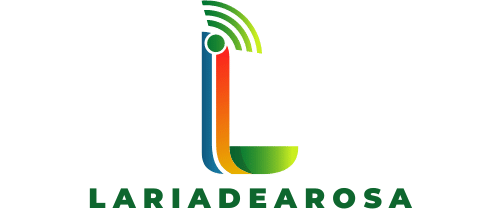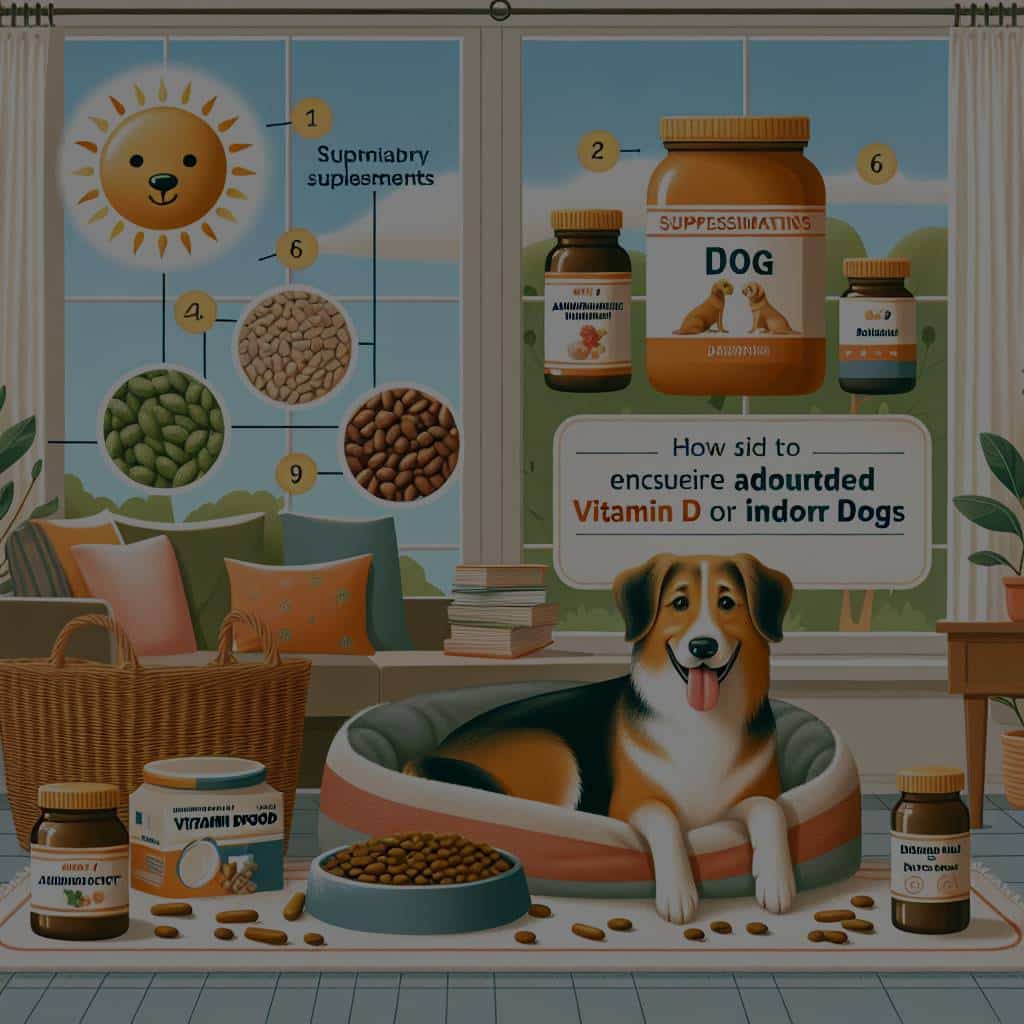Is the health of your beloved canine companion a top priority for you? If so, there’s one critical factor that you might be overlooking: vitamin D. This essential nutrient is crucial for a wide range of bodily functions, from bone formation to mental health. However, indoor dogs may not receive sufficient sunlight exposure, which is the primary natural source of vitamin D. In this comprehensive guide, we’ll delve into everything you need to know about this vital vitamin and how to maintain optimal levels for your indoor dogs.
Understanding the Significance of Vitamin D in Dogs
Before we can fully appreciate the measures needed to ensure adequate vitamin D levels in dogs, let’s first understand why this vitamin is so important.
Also read : How to Introduce a Dog to a Newborn Baby with Sensory Impairments?
Vitamin D is a fat-soluble vitamin that plays a pivotal role in the absorption of calcium and phosphate from the intestine. These two minerals are critical for the development and maintenance of healthy bones and teeth in animals. Besides calcium regulation, vitamin D is also implicated in cell growth modulation, neuromuscular function, and inflammation reduction.
Even though dogs can produce vitamin D naturally through exposure to sunlight, indoor dogs may not receive sufficient sunlight for adequate vitamin D synthesis. As a result, they may develop a deficiency, leading to several health complications such as rickets in puppies and osteomalacia in adult dogs. These diseases are characterized by poor bone formation or softening of bones respectively, leading to skeletal deformities and fractures.
Also read : What’s the Best Way to Protect Your Pet’s Paws from Hot Pavement?
However, sunlight is not the only source of vitamin D. This vitamin is also found in certain foods and can be provided in dietary supplements. The challenge, therefore, lies in ensuring that your indoor dogs receive a balanced diet that provides sufficient vitamin D.
Dietary Sources of Vitamin D for Dogs
We’ve established that sunlight isn’t the only way for your dogs to receive their daily dose of vitamin D. There are plenty of food sources that contain this essential vitamin, and incorporating them into your dog’s diet can make a significant difference in their health.
Fish oil, particularly salmon oil, is one of the best sources of vitamin D. It’s highly digestible and can easily be mixed with your dog’s regular food. Another great option is cod liver oil, but it’s important to administer it in moderation because of its high vitamin A content.
Certain types of fish, such as salmon and mackerel, can also provide a good amount of vitamin D. However, they should be thoroughly cooked to kill any potential parasites and served in small amounts due to their high fat content.
Egg yolks are another excellent source of vitamin D. They can be served cooked or raw, but cooking is generally safer to prevent any risk of bacterial contamination. Finally, commercial pet foods fortified with vitamin D can provide a balanced diet, but it’s important to read the label and understand what you’re feeding your dog.
The Role of Veterinary Guidance in Ensuring Adequate Vitamin D
While diet plays a significant role in maintaining adequate vitamin D levels in your dogs, the guidance of a trusted veterinary professional is paramount.
Firstly, veterinarians can help diagnose a vitamin D deficiency. This is typically done through a serum test, which measures the concentration of vitamin D in your dog’s blood. Symptoms of a deficiency may include loss of appetite, weight loss, muscle weakness, and change in coat condition.
Secondly, a veterinarian can provide personalized dietary recommendations based on your dog’s age, breed, size, and overall health. Considering that too much vitamin D can also be harmful, leading to vitamin D toxicity, personalized guidance is crucial to strike the right balance.
Lastly, in cases of severe deficiency, your veterinarian can administer vitamin D injections to quickly raise your dog’s vitamin levels.
The Balance of Sunlight Exposure for Indoor Dogs
While we’ve explored dietary sources of vitamin D, it’s crucial to also understand the role of sunlight in vitamin D synthesis for dogs.
Just like humans, dogs can synthesize vitamin D through their skin when exposed to sunlight. More specifically, the ultraviolet B rays from the sun interact with the cholesterol in the skin, leading to the production of vitamin D3. This is then converted into its active form (calcitriol) by the liver and kidneys.
For indoor dogs, getting the right amount of sunlight can be a bit tricky. While we do not want to risk skin cancer or overheating by exposing our dogs to excessive sunlight, it’s equally important to ensure that they get enough exposure to synthesize adequate vitamin D. A good practice is to allow your dog access to a sunny spot inside the house or, weather permitting, occasional sunbathing sessions in the backyard.
However, it’s important to remember that sunlight alone may not be enough for indoor dogs, and a balanced diet remains critical in ensuring they receive adequate vitamin D.
Dealing with Vitamin D Absorption Challenges in Dogs
Another aspect to consider while managing the vitamin D levels in your dogs is their ability to absorb this nutrient. Some health conditions can affect the absorption of vitamin D, making it even more challenging for indoor dogs to maintain adequate levels.
Certain diseases such as kidney or liver disease can impair the conversion of vitamin D into its active form, thereby leading to a deficiency. Moreover, some gastrointestinal disorders can affect the absorption of fat-soluble vitamins like vitamin D, resulting in lower serum concentrations despite a seemingly adequate diet.
In such cases, it’s important to work closely with your veterinary professional to manage the underlying disease and adjust the dietary intake or supplementation of vitamin D accordingly. This could involve a special diet or medication to improve vitamin D absorption, or possibly a higher dose of vitamin D under careful supervision.
In sum, ensuring adequate vitamin D for your indoor dogs can be a complex task. It involves a blend of dietary management, veterinary guidance, balanced sunlight exposure, and dealing with potential absorption issues. By keeping these factors in mind and working closely with a trusted veterinary professional, you can help maintain optimal vitamin D levels for your indoor dogs and thus contribute to their overall health and well-being.
Enhancing Vitamin D Levels Through Supplementation
A dietary approach may not always be enough to meet the vitamin needs of an indoor dog, especially if it has a dietary restriction or a health condition affecting vitamin D absorption. In such cases, vitamin supplementation can come into play as a critical strategy.
Supplements come in various forms—tablets, capsules, liquids, and chewable treats—and can significantly boost your dog’s vitamin D levels. Fish oil supplements, for example, are rich in vitamin D and can easily be added to your dog’s food. Cod liver oil, too, is an excellent source of vitamin D, but it should be used judiciously due to its high vitamin A content.
Supplementing your dog’s diet with vitamin D can be a straightforward way to ensure it achieves the right vitamin status. However, caution should be applied as an excessive intake of vitamin D can lead to toxicity. Symptoms of vitamin D toxicity in dogs include vomiting, loss of appetite, increased thirst and urination, weight loss, and muscle weakness.
It’s advisable to consult with a veterinary professional before starting any vitamin supplement regimen for your dog. They can guide you on the appropriate dose based on your dog’s age, size, breed, and overall health status. Regular follow-ups and serum concentrations tests can then be used to monitor the effectiveness of the supplementation and adjust the dose as needed.
Conclusion: Ensuring Adequate Vitamin D for Your Indoor Dogs
Ensuring your indoor dog gets an adequate amount of vitamin D involves a multi-pronged approach. Sunlight exposure, while beneficial, may not always be sufficient due to various factors, including weather conditions and the risk of skin cancer. Therefore, dietary management remains a critical strategy.
Including vitamin D rich foods like fish oil, salmon, mackerel, and egg yolks in your dog’s diet can help maintain appropriate vitamin levels. Commercial dog food fortified with vitamin D is also an excellent option, provided you understand the vitamin content and other nutrients present in the food.
However, certain health conditions can affect your dog’s ability to absorb vitamin D, causing a deficiency despite a vitamin-sufficient diet. In such cases, a veterinary professional can offer invaluable guidance in managing the disease and adjusting the dietary intake or possibly recommending vitamin supplementation.
In the end, your vigilance and proactive steps, coupled with regular veterinary check-ups, can ensure your indoor dog maintains optimal vitamin D levels, contributing to its overall health and well-being. Remember, a healthy dog is a happy dog!






